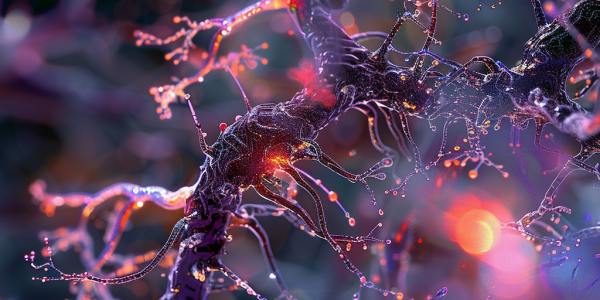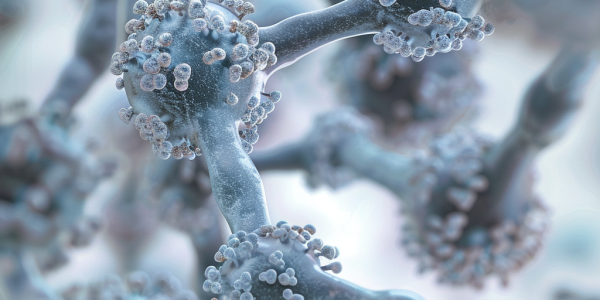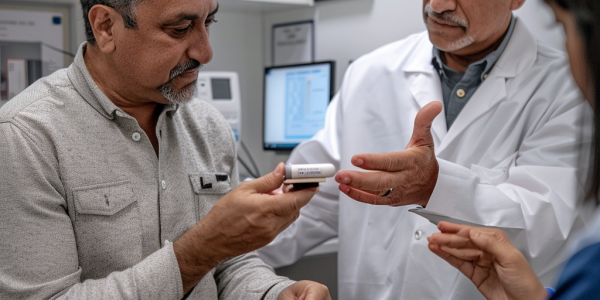Panel Discussion Sheds Light on Criteria for Changing Narcolepsy Treatment
Learn about the criteria for changing treatment in narcolepsy patients as discussed by experts in the field of sleep medicine. Discover the key reasons for switching medications, including declining efficacy and new symptoms. Gain insights into the importance of guiding principles and strategies for managing transitions between medications for individuals with narcolepsy.
Groundbreaking Discovery in Brain Wiring Diagram Revealed
Scientists from Harvard University and Google have made a groundbreaking discovery by reconstructing a detailed wiring diagram of a small piece of brain tissue, shedding light on the intricate neural connections within the brain. This research, focused on a tiny cubic millimeter of brain tissue, revealed 57,000 individual cells, 150 million neural connections, and 23 centimeters of blood vessels. By utilizing advanced technology and machine-learning algorithms, the researchers delved into the nanoscale details of the brain’s structure, generating a massive 1.4 petabytes of data. This study represents a significant leap forward in understanding the complexities of the human brain.
AI Model Identifies Over 500 Toxic Chemicals in E-Liquids for Vaping
Researchers have utilized an AI model to identify over 500 toxic chemicals in e-liquids used for vaping, highlighting the hidden dangers associated with vaping. The study emphasizes the need for a deeper understanding of the health risks posed by inhaling complex e-liquids, especially after the 2019 vaping-related lung injuries outbreak. By analyzing 180 flavor chemicals commonly found in e-liquids, researchers employed a neural network model and experimental mass spectrometry data to assess the potential risks associated with these compounds. This groundbreaking research underscores the importance of ongoing studies to uncover the long-term health effects of vaping and promote safer vaping practices.
CDC Faces Opposition from Texas and Idaho Officials in Bird Flu Investigation
The CDC faces opposition from state officials and dairy farmers in Texas and Idaho as they investigate dairy farms for a potential bird flu outbreak. Some officials view the CDC’s actions as overreach, while others argue for the USDA to take the lead. The clash highlights challenges in managing health crises and differing perspectives on federal agency roles.
Revolutionizing Cancer Treatment: Nanoparticle Breakthrough Targets Brain Metastases
Researchers at the Sylvester Comprehensive Cancer Center have created a groundbreaking nanoparticle that can penetrate the blood-brain barrier, offering new hope for treating brain metastases. Loaded with drugs targeting cancer cell mitochondria, this innovative approach shows promise in shrinking tumors and addressing primary tumors concurrently. Dr. Shanta Dhar highlights the significance of nanomedicine in cancer therapeutics, emphasizing the potential of targeted therapies to minimize harm to healthy tissues. This development represents a significant advancement in cancer treatment, opening doors for more effective and precise therapies.
Breakthrough in Acute Leukaemia Treatment
Recent research published in Nature reveals a potential breakthrough in acute leukaemia treatment, focusing on the role of PI3Kγ in cancer cells. The study identifies a dependency on the PI3Kγ complex in high-risk acute leukaemias, with promising results from treatment with a selective PI3Kγ inhibitor eganelisib. Combining eganelisib with cytarabine shows improved survival rates, offering hope for patients with acute leukaemia.
Trial Shows Remarkable Improvements in Children with Peanut Allergies
Children with peanut and milk allergies are seeing significant improvements through a new trial funded by the Natasha Allergy Research Foundation. The trial involves using everyday foods to gradually increase patients’ tolerance to allergens, with participants like 11-year-old Thomas and five-year-old Grace experiencing life-changing results. The foundation, established in memory of Natasha Ednan-Laperouse, aims to find cures for allergies and advocate for food law changes.
Protein Marker Identified for Repairing Damaged Blood Vessels
Researchers at Indiana University School of Medicine have identified a protein marker that can help pinpoint cells capable of repopulating in individuals with damaged blood vessels. This groundbreaking discovery has the potential to revolutionize therapies for endothelial dysfunction and coronary artery disease. The study, led by Chang-Hyun Gil, Ph.D., MS, marks a significant milestone in the field of cardiology, offering hope for new cell therapies in repairing damaged blood vessels.
New Screening Test Esoguard Offers Hope for Early Detection of Esophageal Cancer
Learn about Esoguard, a new screening test in Long Beach, California, offering hope for early detection of precancerous issues related to chronic heartburn. Find out how this miniature capsule is revolutionizing the screening process for esophageal cancer, a condition that can often go undiagnosed until it’s too late.
Agriculture Commissioner Urges Horse Owners to Prioritize Vaccination Against Mosquito-Borne Diseases
Agriculture Commissioner Steve Troxler urges horse owners in North Carolina to prioritize vaccinating their animals against mosquito-borne diseases like Eastern Equine Encephalomyelitis (EEE) and West Nile Virus (WNV) due to the high fatality rates associated with these illnesses. Implementing preventive measures such as eliminating mosquito breeding grounds and using insect repellants can help protect horses from EEE and WNV. Recognizing symptoms early is crucial for prompt treatment, as there is no evidence to suggest that horses can transmit these diseases to other animals or humans.










